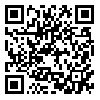Volume 4, Issue 2 (June 2025)
IJER 2025, 4(2): 0-0 |
Back to browse issues page
Download citation:
BibTeX | RIS | EndNote | Medlars | ProCite | Reference Manager | RefWorks
Send citation to:



BibTeX | RIS | EndNote | Medlars | ProCite | Reference Manager | RefWorks
Send citation to:
Fathi E, Heidari H, Davudi H. (2025). Presenting a Model of Childbearing Intention Based on Demographic Factors and Personality Traits in Couples. IJER. 4(2),
URL: http://ijer.hormozgan.ac.ir/article-1-392-en.html
URL: http://ijer.hormozgan.ac.ir/article-1-392-en.html
1- PhD Student in Counseling, Faculty of Humanities, Khom.C., Islamic Azad University, Khomein, Iran
2- Department Counseling Faculty of Humanities, Khom.C., Islamic Azad University, Khomein, Iran ,Dr.h.hedari@Iau.ir
3- Department Counseling, Faculty of Humanities, Khom.C., Islamic Azad University, Khomein, Iran
2- Department Counseling Faculty of Humanities, Khom.C., Islamic Azad University, Khomein, Iran ,
3- Department Counseling, Faculty of Humanities, Khom.C., Islamic Azad University, Khomein, Iran
Abstract: (19 Views)
Objective: The objective of the present study was to elucidate a model of childbearing predicated on demographic variables and personality characteristics, emphasizing the role of religiosity among married partners.
Methods: This investigation is characterized as descriptive-survey in relation to its practical objectives and methodologies for data acquisition. The statistical population encompassed all married individuals residing in the city of Khomein during the year 2024, from which a sample of 232 participants was extracted utilizing a simple random sampling technique. Data were collected through Glock and Stark's religiosity scale and a personality traits inventory. Analytical procedures were performed using SPSS version 22 and PLS version 4 software. Results: The findings indicated that childbearing exerts a significant influence on religiosity and personality traits, with this relationship being reinforced both directly and indirectly through the mediation of religiosity. Furthermore, religiosity positively impacts personality traits. Additionally, the results revealed that demographic factors do not significantly affect childbearing.
Conclusions: In light of the research findings, it is reasonable to conclude that religious values and personality traits constitute influential factors concerning the intention to procreate, and enhancing these variables may effectively augment the propensity to have children.
Methods: This investigation is characterized as descriptive-survey in relation to its practical objectives and methodologies for data acquisition. The statistical population encompassed all married individuals residing in the city of Khomein during the year 2024, from which a sample of 232 participants was extracted utilizing a simple random sampling technique. Data were collected through Glock and Stark's religiosity scale and a personality traits inventory. Analytical procedures were performed using SPSS version 22 and PLS version 4 software. Results: The findings indicated that childbearing exerts a significant influence on religiosity and personality traits, with this relationship being reinforced both directly and indirectly through the mediation of religiosity. Furthermore, religiosity positively impacts personality traits. Additionally, the results revealed that demographic factors do not significantly affect childbearing.
Conclusions: In light of the research findings, it is reasonable to conclude that religious values and personality traits constitute influential factors concerning the intention to procreate, and enhancing these variables may effectively augment the propensity to have children.
Type of Study: Original |
Subject:
Educational Studies
Received: 2025/01/18 | Accepted: 2025/03/23 | Published: 2025/06/1
Received: 2025/01/18 | Accepted: 2025/03/23 | Published: 2025/06/1
Send email to the article author
| Rights and permissions | |
 |
This work is licensed under the Creative Commons - Attribution 4.0 International. |






